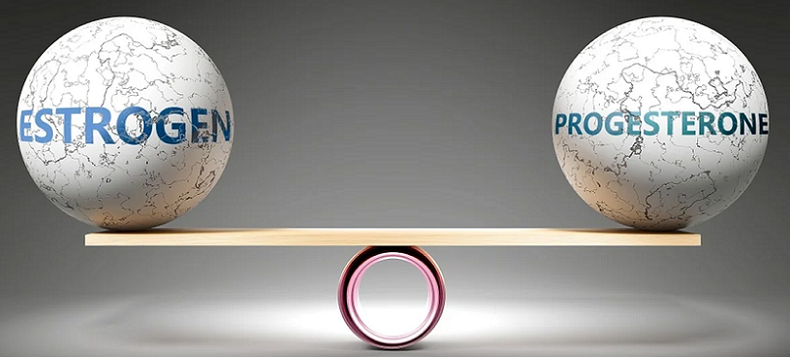
Hormone balance plays a vital role in men’s overall health, and one lesser-known yet essential hormone is pregnenolone. This multifaceted hormone offers numerous benefits, but its complexity can make it challenging to navigate. Here we delve into the world of pregnenolone for men, exploring its functions, signs of deficiency, and proper usage. We also discuss its relationship with other hormones, such as estrogen and testosterone.
Contents
- Introduction to Pregnenolone for Men
- What Is Pregnenolone?
- Signs and Symptoms of Low Pregnenolone in Men
- Pregnenolone Dosage for Men
- When to Take Pregnenolone
- Pregnenolone and Estrogen
- Pregnenolone and Testosterone
- References
Introduction to Pregnenolone for Men
The importance of hormone balance cannot be overstated when it comes to men’s health. Hormones are the body’s chemical messengers, coordinating complex processes like growth, metabolism, and fertility. Imbalances can lead to a wide range of health issues, affecting not just physical well-being but also emotional and cognitive health.
One hormone that plays a crucial role in maintaining this balance is pregnenolone. In this section, we will introduce pregnenolone and provide an overview of its role in men’s health.
Importance of Hormone Balance in Men’s Health
Hormone balance is a critical aspect of men’s health, as hormones regulate vital functions and processes in the body. Balanced hormones support optimal energy levels, muscle growth, sexual function, and emotional well-being. Imbalances, on the other hand, can contribute to fatigue, weight gain, mood swings, and a host of other health concerns. As men age, maintaining hormone balance becomes increasingly important, with hormonal changes often leading to challenges in various aspects of life.
Overview of Pregnenolone’s Role
Pregnenolone, often referred to as the “mother hormone,” is a precursor to many other hormones, including progesterone, testosterone, and cortisol. It plays a vital role in the synthesis of these hormones and helps regulate their production. In addition to its role in hormone synthesis, pregnenolone has been linked to several other key functions in the body, such as stress response, memory, and cognitive function [1].
What Is Pregnenolone?
Pregnenolone is a naturally occurring steroid hormone that plays a critical role in the body’s hormone production and regulation. To fully understand pregnenolone, it’s essential to explore its definition, biological function, and the roles it serves within the body.
Definition and Biological Function
Neurosteroid and Precursor to Other Hormones
Pregnenolone is classified as a neurosteroid due to its ability to influence brain function, particularly in the areas of memory and cognition. It is also a prohormone, meaning it serves as a precursor to other hormones. Pregnenolone is synthesized from cholesterol and is the starting point for the production of many other essential hormones, such as progesterone, testosterone, estrogen, and cortisol.
Synthesis from Cholesterol
The synthesis of pregnenolone occurs primarily in the adrenal glands, with smaller amounts produced in the brain, liver, and gonads. Cholesterol is converted into pregnenolone through a process called steroidogenesis. This process is initiated by the action of an enzyme called cytochrome P450scc (side-chain cleavage enzyme), which cleaves the side chain of cholesterol to produce pregnenolone.
Roles in the Body
Pregnenolone is involved in a variety of functions within the body, including stress response, memory and cognitive function, and immune system regulation.
Stress Response
Pregnenolone plays a significant role in the body’s response to stress [2]. It is a precursor to cortisol, the primary stress hormone, which helps the body adapt to stressful situations by increasing blood sugar levels, suppressing the immune system, and aiding in the metabolism of fats, proteins, and carbohydrates.
Memory and Cognitive Function
As a neurosteroid, pregnenolone has been shown to have positive effects on memory and cognitive function [3]. Research suggests that pregnenolone may enhance memory by modulating the activity of neurotransmitters such as glutamate and gamma-aminobutyric acid (GABA). Additionally, pregnenolone has been found to promote the growth of new neurons and protect existing ones from damage, which can contribute to improved cognitive function.
Immune System Regulation
Pregnenolone has also been linked to immune system regulation. Studies have shown that pregnenolone can modulate the production of certain cytokines, which are proteins involved in immune response [3]. By influencing cytokine production, pregnenolone may help to balance the immune system and protect the body from inflammation and autoimmune conditions.

Signs and Symptoms of Low Pregnenolone in Men
It’s crucial to recognize the signs and symptoms of low pregnenolone levels in men, as this can affect various aspects of health and well-being. Identifying these symptoms can help individuals seek appropriate guidance and intervention to restore hormonal balance.
Physical Symptoms
Fatigue
One of the most common signs of low pregnenolone levels is persistent fatigue. Men with insufficient pregnenolone may feel tired even after a full night’s sleep or struggle to find the energy to complete daily tasks. This fatigue can be a result of decreased cortisol production, as pregnenolone is a precursor to this essential stress hormone.
Joint Pain and Inflammation
Low pregnenolone levels can also lead to joint pain and inflammation, as pregnenolone is involved in immune system regulation. Reduced pregnenolone may result in increased inflammation and contribute to conditions such as arthritis, making it more difficult to maintain an active lifestyle.
Low Libido
Decreased pregnenolone levels can also impact a man’s sexual health, leading to a reduced libido. Pregnenolone is a precursor to testosterone, which plays a crucial role in maintaining sexual desire and function.
Cognitive and Emotional Symptoms
Memory Issues
As a neurosteroid, pregnenolone is involved in memory and cognitive function. Low levels of pregnenolone can contribute to difficulties in recalling information, forgetfulness, and problems with concentration [4].
Brain Fog
Men with low pregnenolone levels may also experience brain fog, a term used to describe feelings of mental confusion and disorientation. This cognitive symptom can make it difficult to focus, think clearly, or process new information effectively.
Anxiety and Depression
Low pregnenolone levels have also been linked to emotional symptoms such as anxiety and depression [5]. Since pregnenolone is involved in the production of hormones like cortisol and progesterone, which help regulate mood, a deficiency can contribute to feelings of sadness, irritability, or increased stress.
Hormonal Imbalance Indicators
Low Testosterone Levels
As pregnenolone is a precursor to testosterone, low pregnenolone levels can contribute to reduced testosterone production. This hormonal imbalance can lead to symptoms such as decreased muscle mass, increased body fat, and mood swings.
Adrenal Insufficiency
Low pregnenolone levels can also indicate adrenal insufficiency, a condition in which the adrenal glands do not produce enough hormones, such as cortisol. This can lead to symptoms like fatigue, weight loss, and low blood pressure.
Thyroid Dysfunction
Pregnenolone deficiency may also be associated with thyroid dysfunction, as both the thyroid and adrenal glands are involved in hormone production and regulation [6]. Symptoms of thyroid dysfunction can include weight changes, fatigue, and sensitivity to cold or heat.

Pregnenolone Dosage for Men
Determining the appropriate pregnenolone dosage for men is essential to optimize its benefits while minimizing potential risks. Factors such as age, health status, and individual needs can influence the ideal dosage.
How Much Pregnenolone Should A Man Take?
Factors Influencing Dosage
There is no one-size-fits-all dosage for pregnenolone, as each individual’s needs may vary. Factors that can influence the appropriate dosage include age, health status, and the presence of any underlying medical conditions. It’s essential to consider these factors when determining the right dosage to ensure the safe and effective use of pregnenolone.
Guidelines and Precautions
While there is no universally agreed-upon dosage for pregnenolone, some general guidelines can be followed. Most over-the-counter pregnenolone supplements contain doses ranging from 5 mg to 50 mg per day. It is generally recommended to start with a lower dose and gradually increase it as needed while monitoring for potential side effects.
It’s important to note that long-term safety data for pregnenolone supplementation is limited. Therefore, it’s essential to exercise caution and adhere to the recommended dosages. If you are taking any medications or have a pre-existing medical condition, consult with a healthcare professional before starting pregnenolone supplementation.
Importance of Consulting a Healthcare Professional
Individualized Dosage Recommendations
Given the complexity of hormone regulation and the potential for individual variation in pregnenolone needs, it is critical to consult with a healthcare professional before starting supplementation. A healthcare provider can assess your unique needs and recommend a personalized dosage based on factors such as age, health status, and specific health goals.
Monitoring for Potential Side Effects
Pregnenolone supplementation, like any other form of hormone therapy, carries the potential for side effects. These may include headaches, irritability, insomnia, or changes in heart rate. By working closely with a healthcare professional, you can ensure that your pregnenolone dosage is adjusted as needed to minimize these risks while maximizing the benefits for your overall health and well-being.
When to Take Pregnenolone
Timing is an important factor to consider when taking pregnenolone to maximize its benefits and minimize potential side effects.
Ideal Time of Day
Morning Intake
For most individuals, it is recommended to take pregnenolone in the morning [7]. This is because the body’s natural production of pregnenolone is highest in the early hours, and supplementing at this time can align with the body’s natural hormone rhythms. Taking pregnenolone in the morning may also help to prevent potential sleep disturbances, as some users have reported experiencing increased energy and alertness after supplementation.
Evening Intake Considerations
In some cases, a healthcare professional may recommend taking pregnenolone in the evening, particularly for individuals with specific health concerns or sleep issues. If evening intake is recommended, it’s crucial to follow the guidance of your healthcare provider and monitor for any potential side effects or sleep disturbances.
Taking Pregnenolone with Meals
Absorption and Bioavailability
To optimize the absorption and bioavailability of pregnenolone, it is generally recommended to take the supplement with a meal. Consuming pregnenolone with food, particularly a meal containing healthy fats, can help to enhance its absorption, as it is a fat-soluble hormone. This can ensure that your body receives the maximum benefits from the supplement.
Reducing Potential Gastrointestinal Discomfort
Taking pregnenolone with a meal may also help to minimize potential gastrointestinal discomfort that can sometimes be associated with supplementation. Consuming the supplement with food can help to buffer any potential irritation and provide a more comfortable experience.
Importance of Consistent Schedule
Maintaining Hormone Balance
To maintain hormonal balance and optimize the benefits of pregnenolone supplementation, it’s important to follow a consistent schedule. Taking pregnenolone at the same time each day can help to support the body’s natural hormone rhythms and ensure that levels remain stable.
Monitoring Progress and Adjusting Dosage
By adhering to a consistent schedule, you can more effectively monitor your progress and any potential side effects. This consistency allows for better assessment of how the supplement is affecting you, making it easier to adjust dosage or timing as needed under the guidance of a healthcare professional.

Pregnenolone and Estrogen
Understanding the relationship between pregnenolone and estrogen is essential, as it can impact hormonal balance and overall health in men.
Does Pregnenolone Increase Estrogen?
Conversion to Other Hormones
As a precursor hormone, pregnenolone can be converted into various other hormones, including progesterone, testosterone, and estrogen. While pregnenolone can be a source of estrogen production, its conversion to estrogen is typically limited and depends on several factors, such as the presence of specific enzymes and the individual’s unique hormonal needs.
Balancing Hormone Levels
In general, pregnenolone supplementation is not directly associated with a significant increase in estrogen levels in men. However, it’s essential to recognize that hormonal balance is a complex process, and each individual’s response to supplementation may vary. In some cases, pregnenolone supplementation may lead to changes in estrogen levels, particularly if there is an underlying hormonal imbalance.
Potential Benefits and Risks
Benefits of Balanced Estrogen Levels
Maintaining balanced estrogen levels is important for men’s health. Moderate levels of estrogen support bone density, cardiovascular health, and cognitive function. Ensuring that estrogen levels are within a healthy range can contribute to overall well-being and help to prevent health issues related to hormonal imbalances [8].
Risks of Excess Estrogen
Excess estrogen in men can lead to negative health outcomes, such as gynecomastia (enlarged breast tissue), weight gain, and an increased risk of certain health conditions like cardiovascular disease and prostate issues. Monitoring estrogen levels while taking pregnenolone is important to minimize the risk of these adverse effects.
Importance of Monitoring Hormone Levels
Working with a Healthcare Professional
Given the complexity of hormone regulation, it’s essential to work closely with a healthcare professional when using pregnenolone supplementation. A healthcare provider can help monitor your hormone levels, including estrogen, to ensure that supplementation is supporting your hormonal balance and overall health.
Adjusting Dosage and Supplementation
If estrogen levels become imbalanced while taking pregnenolone, a healthcare professional can help you adjust your dosage or recommend alternative therapies to restore hormonal balance. Regular monitoring and open communication with your healthcare provider can help you safely and effectively use pregnenolone supplementation to support your health and well-being.
Pregnenolone and Testosterone
The relationship between pregnenolone and testosterone is an important consideration for men seeking to optimize their hormonal health.
Does Pregnenolone Increase Testosterone?
Pregnenolone as a Precursor
Pregnenolone is a precursor to various hormones, including testosterone [9]. As such, it plays a crucial role in the production of testosterone in the body. However, the extent to which pregnenolone supplementation directly increases testosterone levels can vary based on individual factors, such as age, health status, and existing hormone levels.
Factors Affecting Conversion
The conversion of pregnenolone to testosterone depends on several factors, including the presence of specific enzymes and the individual’s unique hormonal needs. While pregnenolone can potentially increase testosterone levels, this effect may not be uniform across all individuals, and other factors may influence the overall impact on testosterone production.
Potential Benefits of Increased Testosterone
Enhanced Muscle Mass and Strength
Higher testosterone levels can contribute to increased muscle mass and strength, as testosterone plays a vital role in muscle protein synthesis. Men with higher testosterone levels may experience improvements in their overall physical performance and body composition.
Improved Sexual Health
Testosterone is essential for maintaining a healthy libido and proper erectile function. Pregnenolone supplementation may contribute to increased testosterone levels, potentially improving sexual health and overall quality of life for some men.
Mood and Cognitive Benefits
Increased testosterone levels have been linked to improvements in mood, memory, and cognitive function. Men who experience a boost in testosterone as a result of pregnenolone supplementation may also benefit from enhanced mental clarity and emotional well-being.
Importance of Monitoring Hormone Levels
Working with a Healthcare Professional
When using pregnenolone supplementation to support testosterone levels, it’s important to work closely with a healthcare professional. They can help monitor your hormone levels, ensuring that supplementation is effectively supporting your hormonal balance and overall health.
Adjusting Dosage and Supplementation
If testosterone levels become imbalanced while taking pregnenolone, a healthcare professional can help you adjust your dosage or recommend alternative therapies to restore hormonal balance. Regular monitoring and open communication with your healthcare provider can help you safely and effectively use pregnenolone supplementation to support your health and well-being.
References
[1] Alterations in Pregnenolone and Testosterone Levels in Male Shift Workers
[2] Pregnenolone in Man: Plasma Levels in States of Normal and Abnormal Steroidogenesis
[3] Pregnenolone
[4] Dehydroepiandrosterone and Pregnenolone
[5] Pregnenolone Benefits and Considerations: Is the Pregnenolone Steal Real?
[6] Pregnenolone
[7] Pregnenolone
[8] Alterations in Pregnenolone and Testosterone Levels
[9] Scientific overview of hormone treatment used for rejuvenation

